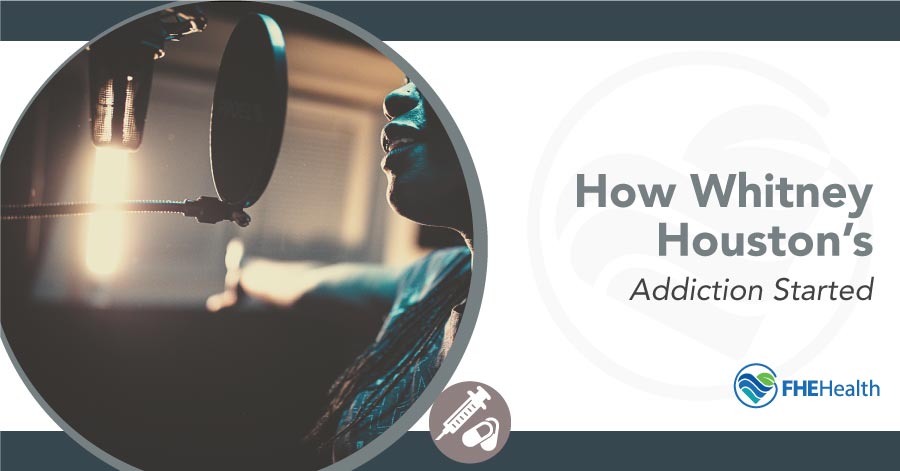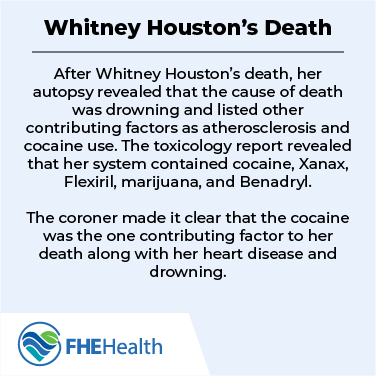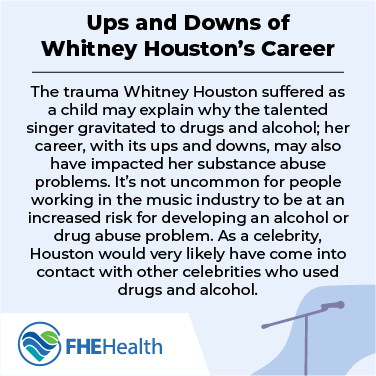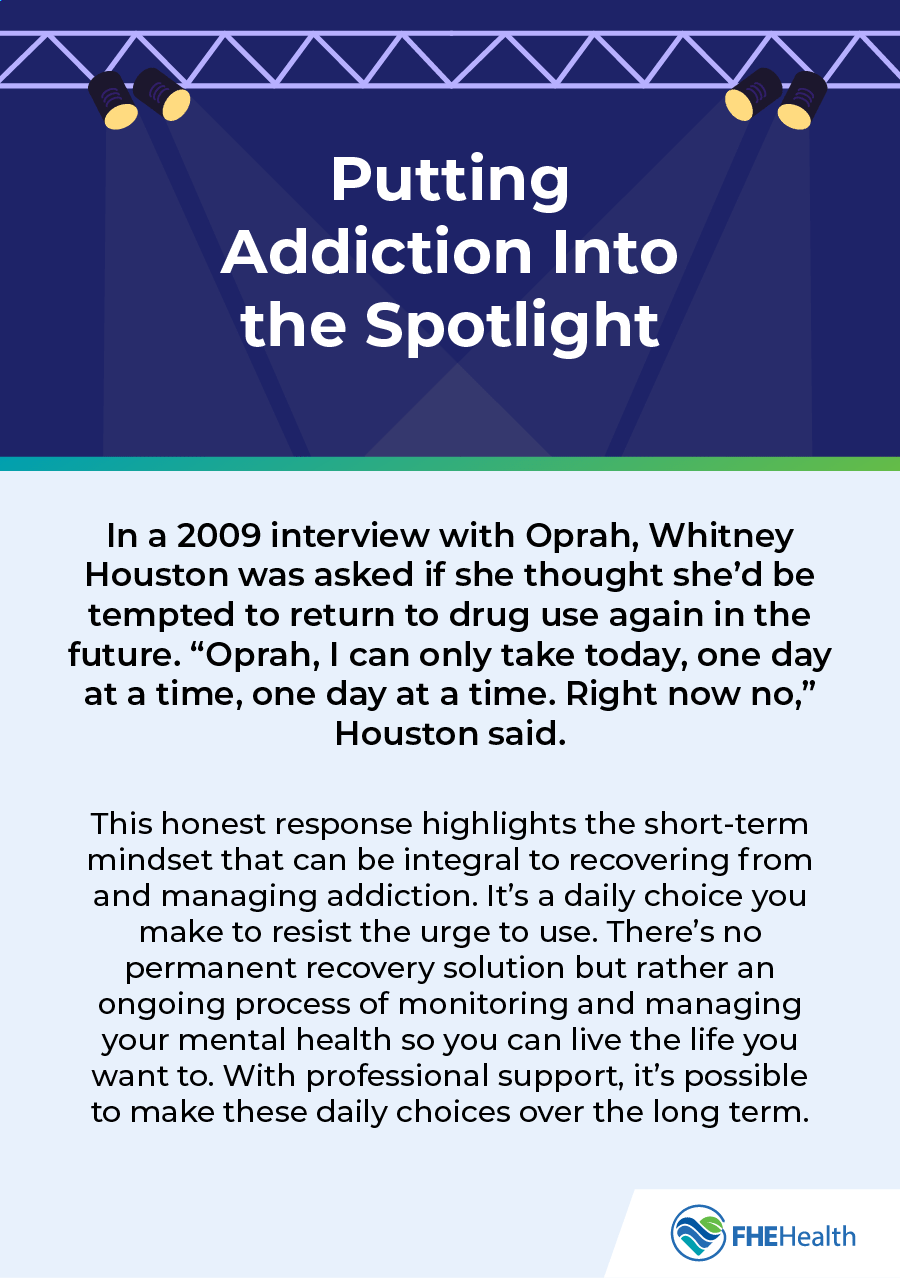
The late Whitney Houston is a pop culture icon, so much so that even without using her last name, people know who you’re referring to. Her legendary vocals have left a lasting mark on the music industry, even in the wake of her tragic death in 2012. While her life looked glamorous to an outsider, Whitney struggled with substance abuse and addiction that ultimately resulted in her passing. It’s critical to shine a light on Whitney Houston’s addiction and the brave battles with addiction that public figures are fighting to start a positive conversation around seeking help if you need it.
Whitney Houston died on February 11, 2012. The official autopsy report declared her cause of death as accidental drowning, heart disease and cocaine use.
View this post on Instagram
What Was Reported in Whitney Houston’s Toxicology Report?
 After the singer’s death, her autopsy revealed that the cause of death was drowning and listed other contributing factors as atherosclerosis and cocaine use. The toxicology report revealed that her system contained cocaine, Xanax, Flexiril, marijuana, and Benadryl. The report listed a substance found in the singer’s liver called cocaethylene, which is formed when the individual uses both cocaine and alcohol. The coroner’s report also stated that drug paraphernalia was found in the singer’s hotel bathroom where she died and an open bottle of champagne and beers were found in the room itself.
After the singer’s death, her autopsy revealed that the cause of death was drowning and listed other contributing factors as atherosclerosis and cocaine use. The toxicology report revealed that her system contained cocaine, Xanax, Flexiril, marijuana, and Benadryl. The report listed a substance found in the singer’s liver called cocaethylene, which is formed when the individual uses both cocaine and alcohol. The coroner’s report also stated that drug paraphernalia was found in the singer’s hotel bathroom where she died and an open bottle of champagne and beers were found in the room itself.
After the toxicology report was released, headlines were quick to mention that the singer’s system contained a cocktail of drugs and alcohol, but the coroner made it clear that the cocaine was the one contributing factor to her death along with her heart disease and drowning.
Did the Singer Suffer from Trauma?
 Many people with substance use disorders have experienced or witnessed trauma in their past. Trauma is frequently a contributing factor in the development of an alcohol or drug abuse problem, and the distress that it triggers typically remains a trigger to abuse drugs or alcohol until the individual is able to manage it. According to biographical details about Houston’s childhood, she and her brother were allegedly sexually abused by a family member when they were children. However, the abuse was hushed up.
Many people with substance use disorders have experienced or witnessed trauma in their past. Trauma is frequently a contributing factor in the development of an alcohol or drug abuse problem, and the distress that it triggers typically remains a trigger to abuse drugs or alcohol until the individual is able to manage it. According to biographical details about Houston’s childhood, she and her brother were allegedly sexually abused by a family member when they were children. However, the abuse was hushed up.
Childhood trauma leaves someone at increased risk for developing a drug and alcohol problem. The fact that Houston did not get therapy at a young age or even confide the abuse in her mother very likely left her with immense unresolved emotions related to her traumatic past.
However, the singer’s traumatic experiences were not contained by her childhood. Those close to her have revealed how criticisms about her image left her feeling vulnerable and disheartened. Houston had often been accused of “white washing” herself by the African American community for her image and career choices.
Her marriage to Bobby Brown was incredibly tumultuous as evidenced by repeated headlines about his infidelities. Houston’s assistant reported how driven she was to keep her family together. Even so, the stress of ongoing career and family struggles could easily be viewed through the lens of trauma. Houston did not lead a life of calm and serenity. Of course, many people do not, but for someone with unresolved trauma and addictions, that trauma remains a powerful trigger to use–and keep using.







